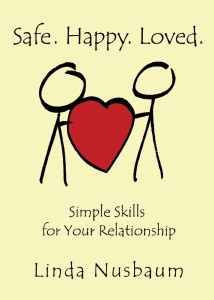Often when we lash out at our mate it is usually because we have been triggered by something they have said or done. This is common because most people hold on to our difficult feelings and they reside somewhere in the body.
Triggers Are Old Wounds Resurfacing in New Situations

Someone we love says something to us and we explode. This is common too. If you are in a relationship and your loved one just reacts when you say something, it’s probably because you touched something that resides in his or her body and this feeling has been out of reach until you triggered it.
That’s why psychologists call these out of the blue reactions triggers. They probably make sense to the person who is reacting if they have spent time wondering why they act the way they do.
But most people don’t bother looking for answers as to why they explode. They just tell their partner that exploding is part of their personality. But it really isn’t. It is something that made a home in the body from a terrible experience that happened a long time ago.
Let’s say you were beaten by a parent when you were young. You might be very sensitive when someone mimics your aggressive parent and you might react the same way you did as a child when you feel that someone is threatening.
Events Similar to Past Hurts Evoke Cause Strong Reactions

I got some education on myself a few years ago. I used to bristle when someone would tell me in a harsh way to do something. I could feel my hackles rise and feel myself getting mad. But when I was in a psychological setting, I was able to understand that my reaction had really nothing to do with whoever said something to me in a harsh way.
My reaction was about not wanting my mother to yell at me. My mom was often overwhelmed and when she got uncomfortable, she would yell. I always hated this and I probably tucked away my reaction to her somewhere in my body. But when someone in my current life, 40 years later would say something harsh, all of the unspoken reaction I would have towards my mother as a child would be rushing inside me.
Reflecting On Differences Between the Situations Can Help

“Stop yelling at me,” I would want to say to anyone who was harsh. But they are not my mother. They did not yell at me over and over again. I just didn’t realize this until I was able to. I understood that I didn’t have to get mad at people who were telling me things about what I was supposed to do because they are not my mother.
This was a big relief to me. It helped me develop tolerance toward people who were strong. I also developed compassion for my mother who was overwhelmed with three little ones and no help.
So, when we can understand our triggers, then we lose our reaction to them. And that is why it is so helpful to learn ourselves, especially when we over-react. Many humans do this. It is only a problem when we ignore it. Look into your triggers. Learning them will free you in this life. And from personal experience, that is a great feeling.
Connect with Your Partner
Read a Book About Relationships
Learn how to more effectively communicate with your partner, by reading Linda’s book, Safe. Happy. Loved. Simple Skills for Your Relationship. It might help both of you feel happier, more loved, and even more connected. Give it a read.
Get Couples Counseling
Come in for couples counseling. Couples counseling can help you and your loved one get the most out of your relationship. It'll equip you with coping strategies and tools for communication that can help you argue less and love more.


